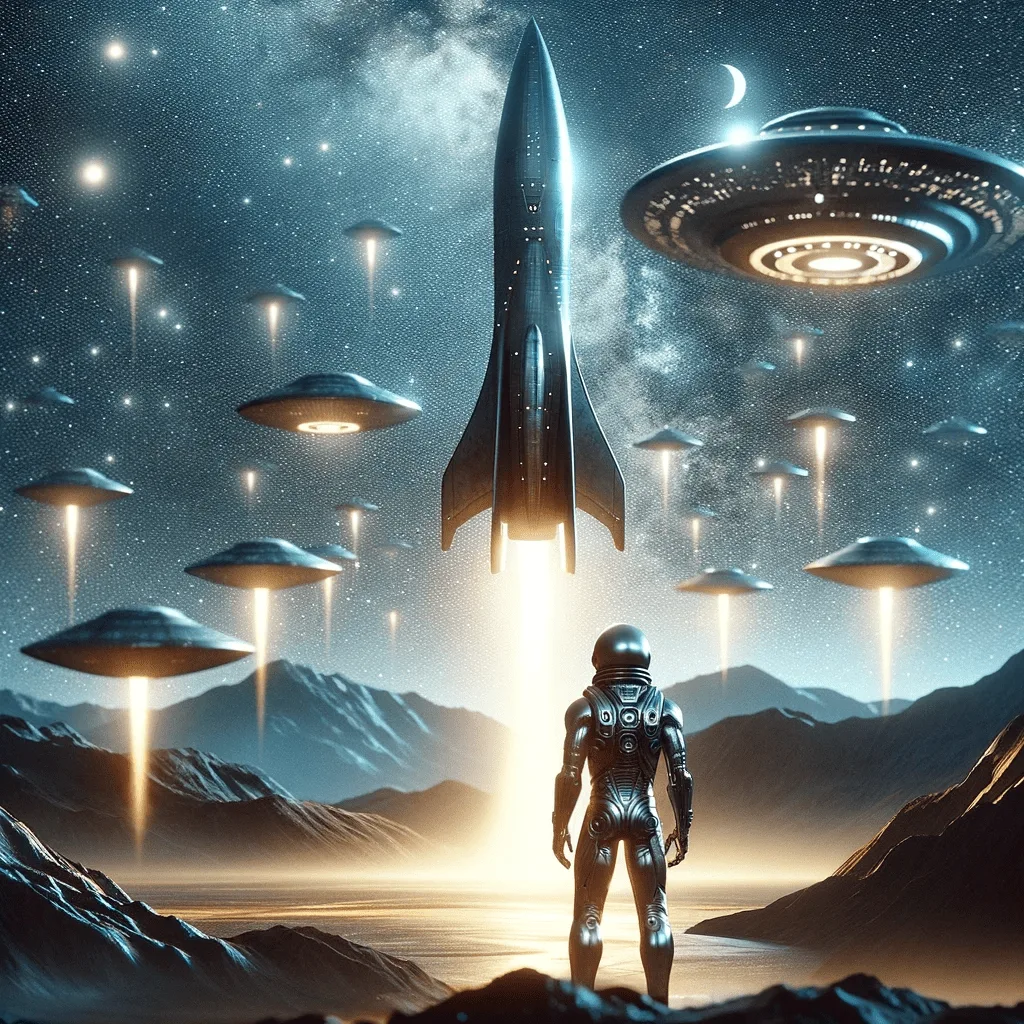UFO Revolution – The Truth Seekers Season 1 Episode 2 (S01:E02)

“UFO Revolution – The Truth Seekers Season 1 Episode 2 (S01:E02)” presented by TMZ is a riveting and thought-provoking episode that explores the multifaceted world of UFO phenomena. This episode stands out as a blend of investigative journalism and sensational disclosures. It tackles the pervasive belief in public skepticism and government secrecy, resonating with the phrase “you can’t handle the truth,” to highlight the complex and potentially unsettling nature of UFO information. The peril faced by whistleblowers is exemplified through David Grusch’s fear for his life, underscoring the dangers and retaliation often faced by those who reveal sensitive truths.
The episode compellingly uses the Matrix analogy, where Grusch’s refusal to “live in the matrix” symbolizes the awakening from a controlled reality to understand the true nature of our existence, including the reality of UFOs. It underscores the fundamental human right to knowledge, hinting at a conflict between this right and the concerted efforts of a government-industrial complex to obscure certain truths. Adding a layer of credibility, the episode features Edgar Mitchell, an Apollo 14 astronaut, who discussed alien bodies and technology with Richard Dolan, further intriguing the audience.
The inclusion of the Davis Wilson Notes suggests these are pivotal documents in UFO research, while the mysterious deaths of UFO researchers hint at a dangerous, possibly sinister aspect of this field.
One challenge lies in educating Elon Musk on this subject, as his understanding is crucial for broader public awareness and comprehension. Despite Musk’s considerable resources and deep interest in space exploration, his skepticism about alien life prompts modern-day questions regarding the existence and evidence of extraterrestrial beings and crafts.
This leads to the puzzling question: why have some individuals become aware of this reality, while others remain uninformed or unconvinced?
The episode also touches on airline policies regarding UFO reporting, suggesting a systematic suppression of information.
The quality of UFO imagery is questioned, particularly why it hasn’t improved alongside advances in camera technology, fueling skepticism about the authenticity of UFO sightings. Personal narratives are brought into focus with discussions about encounters with unidentified aerial phenomena (UAP) and non-human entities by the Experiencer Group. The episode details different alien types, describing short grays as biological drones and tall grays as leaders, adding depth to the alien encounter stories.
The personal costs of disclosure are starkly highlighted, showing the severe consequences for individuals who come forward with their experiences, including loss of jobs, families, and reputations. Finally, journalist Jeremy Corbell shares his experiences of being threatened due to his involvement in releasing UFO information, illustrating the risks and challenges in UFO journalism. Overall, this episode offers a comprehensive and intriguing look into the world of UFOs and extraterrestrial life, blending personal testimonies, whistleblower insights, and broader socio-political commentary.
In the exciting series “UFO Revolution,” viewers are taken on a fascinating journey exploring unidentified flying objects and the mysteries surrounding them. The first episode, The Breakthrough (S01:E01), sets the stage by introducing groundbreaking theories and evidence in the field of UFO studies. This is followed by the second episode, The Truth Seekers (S01:E02), where experts and enthusiasts look deeper into the search for the truth behind UFO sightings. In the third episode, The Possibilities (S01:E03), the series explores the potential implications and scenarios in a world where UFOs are a reality. Complementing the series is the TMZ Presents: UFO Revolution Podcast, offering further insights and discussions on this endlessly intriguing topic.

